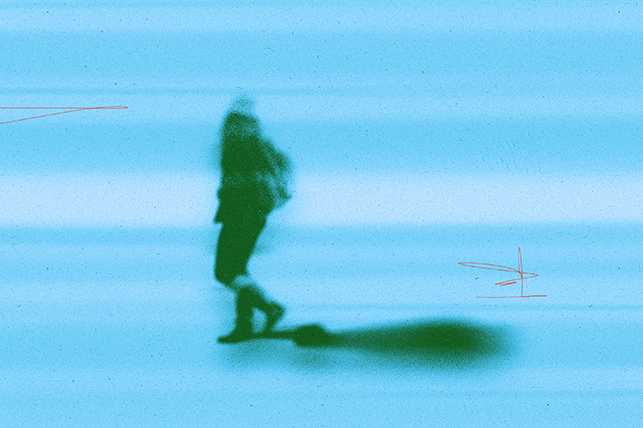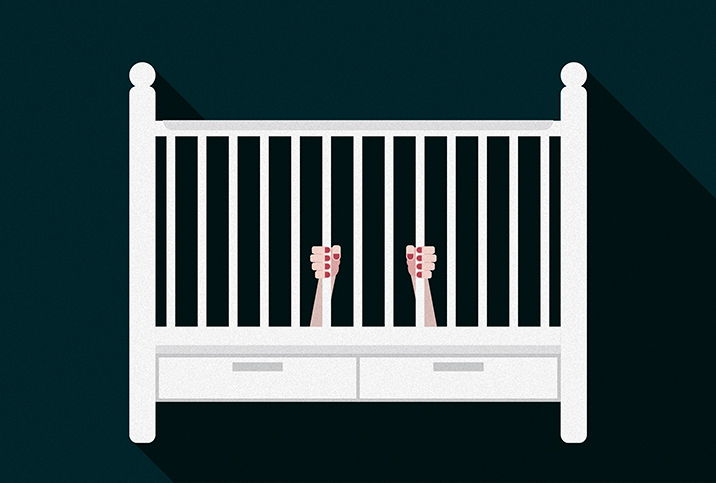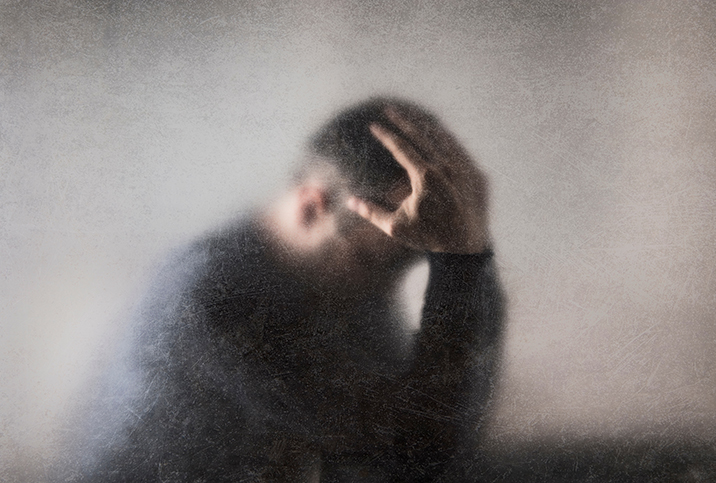Walks in Nature Could Help Prevent Postpartum Depression

Postpartum people who live on tree-lined streets may be less likely to develop postpartum depression (PPD).
At least that's what the research suggests, according to a recent study published in The Lancet. The study doesn't prove living near green space helps mental health, but it is the latest in a body of research indicating nature's healing and protective properties.
What is the postpartum depression study?
The study collated data from the medical records of more than 415,000 women with newborns in Southern California.
Researchers found those living in urban areas with more tree coverage were less likely to be diagnosed with PPD than those who lived in areas with fewer trees, independent of household income, race or education level.
What is postpartum depression?
According to the American Pregnancy Association, about 80 percent of postpartum people experience the "baby blues" for about two weeks after giving birth.
During this period, feelings of sadness, guilt and helplessness can arise. This is primarily due to a lack of sleep, stress, and a wave of hormonal, physical and emotional changes, said Perri Shaw Borish, M.S.S., L.C.S.W., the founder of Whole Heart Maternal Mental Health in Philadelphia.
PPD, which can occur at any time in the first year postpartum, affects up to 15 percent of mothers, according to the American Psychological Association (APA).
Postpartum depression causes similar but more severe symptoms, which can last for up to two years and significantly affect a person's health and well-being, including raising the risk of suicide and chronic mental illness, said Alixis Rhodes, Psy.D., an assistant professor at the Chicago School of Professional Psychology.
It can also interfere with a postpartum person's ability to care for or bond with their baby and, depending on the severity, may adversely affect infant development.
What causes postpartum depression?
It's uncertain what causes PPD, but multiple factors likely contribute, said Michael Krychman, M.D., a Southern California-based OB-GYN with HerMD, a women's clinic with in-person and virtual care.
The factors that could put someone at risk for PPD include genetics, environmental influences such as sleep deprivation, and chemical changes in the brain caused by significant hormonal shifts after the baby is born.
Changes in relationship dynamics might also increase stress, making a person more susceptible to PPD or postpartum anxiety.
Borish said other factors that could raise the risk of postpartum depression include:
- A history of mood disorders
- A history of trauma
- Teen pregnancy
- Lack of social support
- Being in an abusive relationship
- Complications during pregnancy or delivery
- Adverse obstetric events, such as a stillbirth or neonatal death
Why might spending time in nature potentially help PPD?
Research suggests exposure to nature could help reduce stress, improve cognitive functioning and diminish negative thought patterns.
It can also reduce self-consciousness and improve confidence and resilience, said Cindy McPherson Frantz, Ph.D., the Norman D. Henderson Professor of Psychology and Environmental Studies at Oberlin College in Ohio.
Moreover, nature can engender a sense of awe and connection to something larger than yourself, which research indicates may help relieve depression.
"The data suggests that nature is both restful for the mind and helps us get out of our heads and connect to something outside of ourselves," Frantz said.
Nature may also alleviate "directed attention fatigue" (DAF) through "effortless attention," such as reflecting on water bubbling over rocks in a stream or clouds moving across the sky, said Jun Wu, Ph.D., a senior researcher involved with the study and a professor at the University of California, Irvine.
DAF occurs when the brain's mechanisms that filter out distractions become overworked while you try to focus on a single task. This condition can cause symptoms such as irritability, impatience and forgetfulness.
Further, Wu said it's easier to exercise when living on a tree-lined street, which naturally provides more shade and better air quality. Besides exercise's physical health benefits, research, including a 2023 review published in the British Journal of Sports Medicine, suggests it can be equally—if not more—effective than medication in treating depression and anxiety.
Wu said that physical activity may be particularly important for postpartum people, who tend to grapple with multiple health challenges.
"For postpartum women, physical activity can improve mood, reduce depression and anxiety, maintain cardiorespiratory fitness, improve weight control and promote weight loss," Wu said.
Any exercise can be beneficial, experts said, including walking around the block.
"It's particularly beneficial for postpartum women to get outside, get fresh air, take a walk and put their face in the sun," Borish said. "We talk a lot about going back to basics for postpartum women; this is part of that. We need to remind new mothers to take care of themselves—not just their babies."
Wu and her colleagues also noted that walking outdoors provides opportunities for socialization, which is another crucial component of postpartum well-being.
"Social support is also important for postpartum women. Socialization with other moms, friends and family members can help release stress, get help on challenging tasks such as breastfeeding and newborn care, and receive advice and support on improving relationships," Wu said. "Creating exercise and socialization opportunities for postpartum women will likely benefit their physical health, mental condition and well-being."
Developing relationships with family and friends and having a support group could help someone with a postpartum mood disorder.
How can you make the most of nature?
Frantz said studies suggest the benefits of being immersed in nature start to appear after just 15 minutes. Practicing mindfulness—calmly focusing on the present and your surroundings, thoughts and emotions—may enhance the experience and yield additional health perks, studies indicate.
For those who don't live on a tree-lined street or near a green space, Wu said gardening—could be in the backyard, on the patio or indoors—can be beneficial.
Other ways to reap nature's benefits include meditating while listening to natural soundscapes, such as ocean waves or birds chirping, and visiting local, regional and national parks when time and resources allow. Watching nature videos or looking at pictures can also have a positive effect, Frantz said.
Even lying in a sunny patch on the floor can help, Borish said.
"A little vitamin D can go a long way to help your mood," she added.
How can you treat PPD?
The American College of Gynecologists and Obstetricians (ACOG) recommends every postpartum person be screened at least once for PPD and postpartum anxiety during the perinatal period.
Addressing these disorders as soon as possible is essential, as a delayed diagnosis can lead to more severe and treatment-resistant challenges, said Adi Davidov, M.D., the associate chair of OB-GYN at Northwell Staten Island University Hospital in New York City.
Generally, treatment includes the following:
- Lifestyle adjustments
- Counseling
- Medication
"It is a very common disease, and they are not alone. Many women feel embarrassed to tell their spouse or even the doctor about their feelings," Davidov said. "They should not feel embarrassed as postpartum depression is like any other disease, and the quicker we acknowledge it, the quicker we can treat and cure it."
Speak to your doctor if you experience postpartum depression symptoms, so you can get the help you need.
The bottom line
Krychman and Wu said the study underlines the importance of nature and exercise in postpartum health and well-being and could inform future urban planning projects. It also brings more awareness to PPD, a prevalent condition frequently undiagnosed and undertreated, and may help people with the condition to recognize there is hope and they are not alone.
"The postpartum period is a challenging time for new moms, who should be easy on themselves and manage to reduce stress through multiple ways, including going out and enjoying nature and seeking social support," Wu said.


















